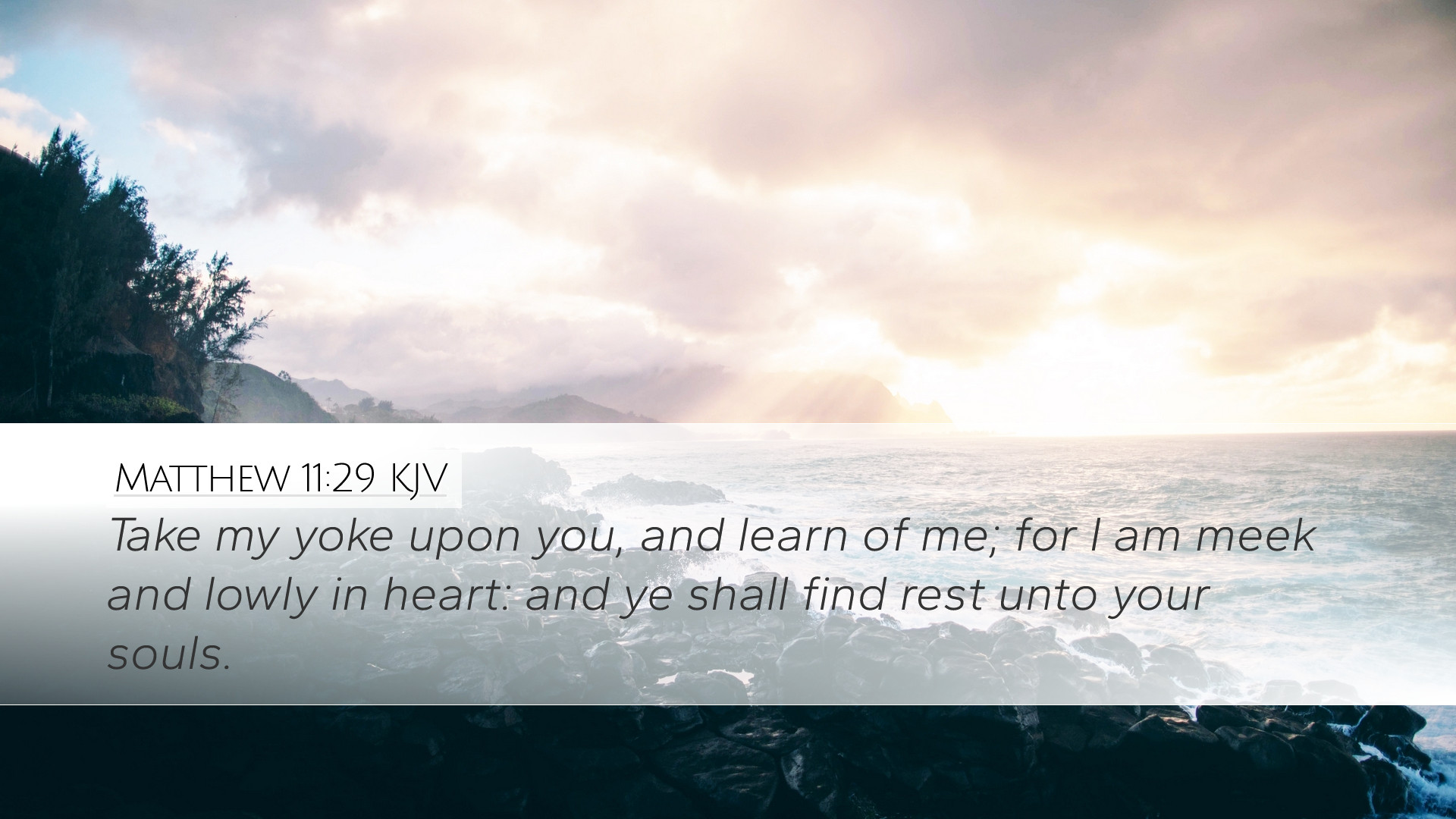Introduction
This verse from the Gospel of Matthew serves as an invitation from Jesus to all who are weary and burdened. It encapsulates key themes such as learning from Christ, His character, and the concept of rest in Him. Through this commentary, we derive insights from well-known public domain commentaries including those by Matthew Henry, Albert Barnes, and Adam Clarke.
Analysis of the Text
1. "Take my yoke upon you"
According to Matthew Henry, the metaphor of a yoke refers to submission and a call to discipleship. Jesus invites us to take on His yoke, which symbolizes a partnership with Him in service. The yoke was traditionally a wooden frame placed on the necks of oxen, allowing them to bear burdens together.
2. "And learn of me"
Albert Barnes emphasizes that learning from Christ signifies adopting His teachings, character, and way of life. It articulates not only the act of intellectual learning but also the transformation it brings. This learning process is essential as it cultivates our attitudes to reflect the meekness and humility embodied in Christ.
3. "For I am meek and lowly in heart"
Adam Clarke explains that the nature of Christ is important to understand—He defines Himself as “meek and lowly.” These attributes highlight Jesus's humility and gentleness. In a world rife with pride and ambition, His example offers a striking contrast, calling believers to approach life with humility and reliance on God.
4. "And ye shall find rest unto your souls"
This final promise of the verse is central to the Christian faith. Matthew Henry notes that true rest is not merely physical but spiritual, addressing the deeper needs of the soul. The rest that Christ offers is profound—freedom from the heavy burdens of sin, striving, and the weariness of legalism. It implies peace that surpasses understanding, found in fellowship with Jesus.
Application for Believers
This scripture presents challenges and invites contemplation for modern-day believers:
- Yielding to Christ: This verse calls for an examination of personal burdens and an encouragement to surrender them to Christ. Believers are urged to recognize that true strength is found in weakness, as they depend on Him.
- Living in Humility: The attributes of meekness and lowliness challenge contemporary values that often glorify self-assertion. This verse encourages believers to embody Christ-like humility in their interactions.
- A Community of Learning: The invitation to “learn of me” places importance on community and discipleship as vital for spiritual growth, encouraging believers to engage in mutual edification within the church.
Conclusion
Matthew 11:29 serves as a profound declaration of the heart of Jesus's message—offering a yoke that leads to rest rather than burden. Through the insights provided by respected commentators, it is clear that this verse is rich with theological meaning and practical application, calling both individuals and communities to a deeper relationship with Christ.


